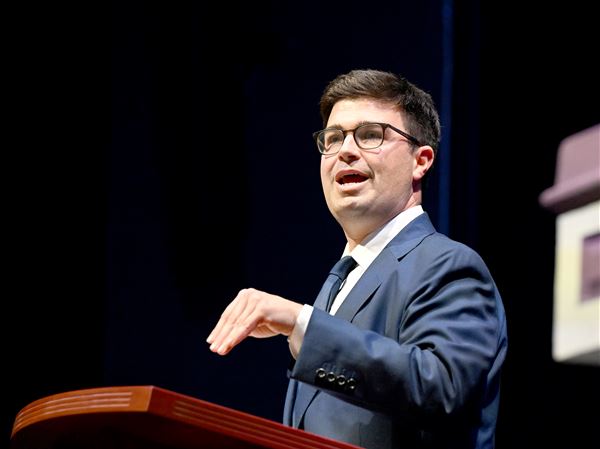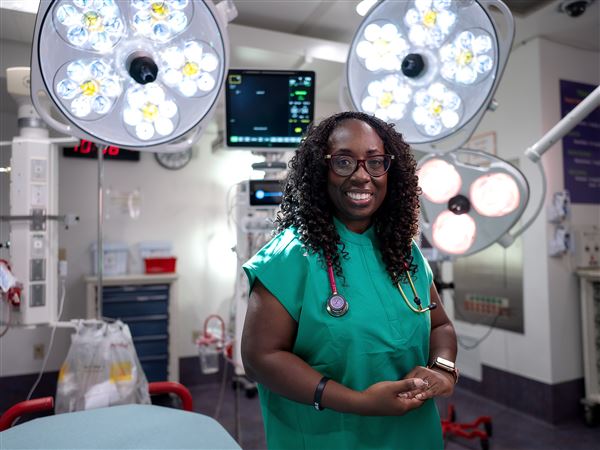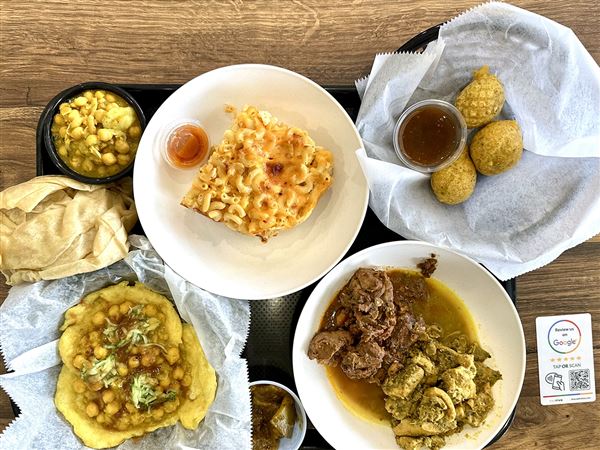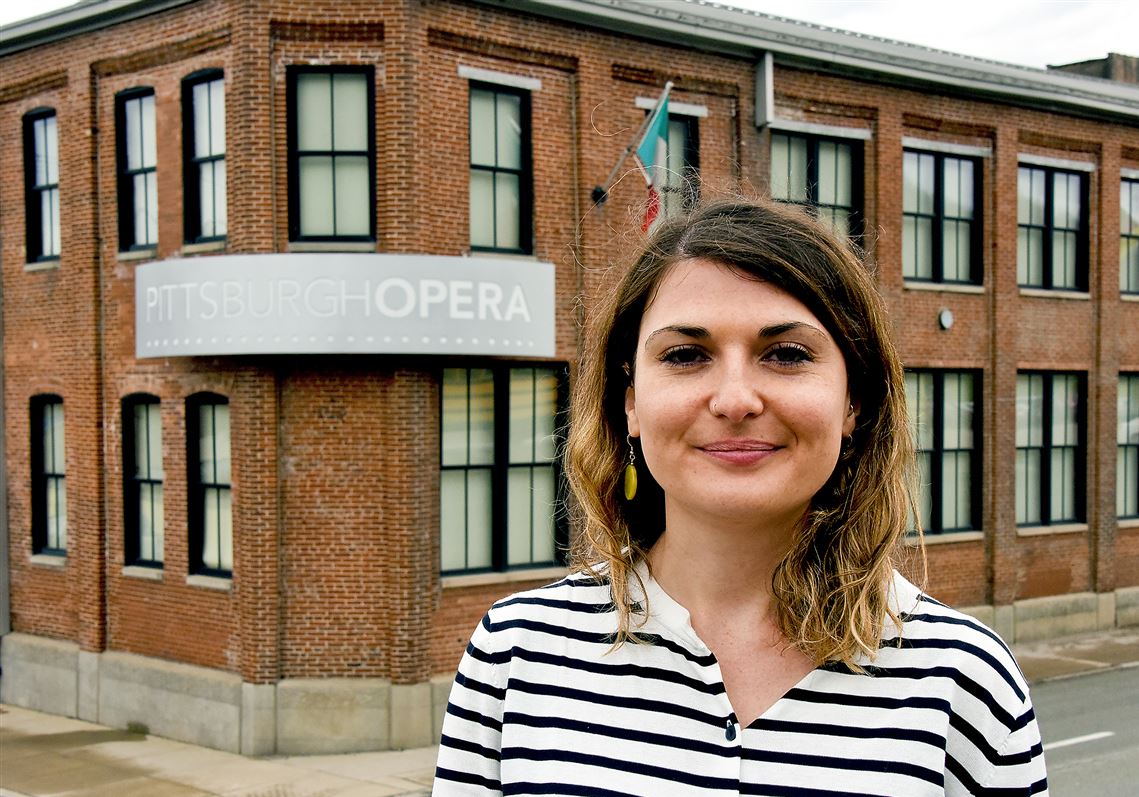After President Donald Trump signed the executive order for his first travel ban on Jan. 27, British-Iranian composer Soosan Lolavar of London was unsure if she could attend the world premiere Saturday of her new opera in Pittsburgh.
Ms. Lolavar, 29, was born and raised in London, but her father was Iranian. Her dual citizenship, which allowed her to carry two passports, led to banishment from re-entering the country she called home last year. She had previously studied Iranian music at Carnegie Mellon University under a Fulbright Scholarship.
“I was just really upset. I had lived in the U.S. for a year and I had made friends and felt a sense of community in Pittsburgh,” Ms. Lolavar said. “To think that I was banned from returning made me worry about what’s next, which could be something a lot more sinister.”
On Jan. 30, the U.S. Embassy in London had advised dual citizens from the seven banned Muslim countries against applying for a U.S. visa.
Ironically, her opera, “ID, Please,” which premieres Saturday night at Pittsburgh Opera headquarters in the Strip District follows the story of a border agent interrogating an assortment of passengers. Ms. Lolavar and librettist Daniel Hirsch had dreamed up the story during the 2016 primaries, when the two were taken aback by Mr. Trump’s hateful rhetoric, she said.
But the skies would soon clear. Ms. Lolavar, who considers herself privileged for having an British passport, was able to travel to Pittsburgh about a week after the colloquially termed “Muslim ban,” began. England’s foreign secretary Boris Johnson had secured a special dispensation for dual nationals to travel.
She was nervous the entire flight, she said. When she landed at John F. Kennedy International Airport in New York City, she expected a slew of questions from border patrol agents. To her relief — and astonishment — she passed unnoticed.
Since then, Ms. Lolavar returned to Pittsburgh a second time on Feb. 26 and will stay for the opening of her opera, which is one of three being performed as part of a collaboration between the Pittsburgh Opera and students, alumni and faculty from various CMU departments.
Despite her good fortune, she still feels torn about coming to the U.S., she said, since solidarity is critical for her friends and family who still cannot cross borders.
Parts of her libretto poignantly express her own anxiety in traveling. “I clutch my passport so hard my hand hurts / I’m never going back to where I’m from / I do not like the way you look at me like that.”
She also made the music, itself, much darker after Mr. Trump was elected and he enacted the travel ban, she said. Suddenly, her opera wasn’t dystopian, anymore, because it was reality, she said.
But the libretto for “ID, please,” is not autobiographical by nature, instead focusing universally on the reality “others” from all nations face in immigration. The 20-minute performance takes place in an unnamed country in an undesignated time, and depending on who is watching, people will make their own assumptions about the setting.
Ms. Lolavar said most Americans assume the piece is about the US-Mexico border, due to a few references to a “wall.” Her Briton friends, who have peeked at the piece, believe it is about illegal immigration between the UK and the Calais Jungle refugee camp in France.
“It’s been a yearlong process and every political event that has happened, from the Trump presidency to Brexit, has pulled [the opera] into sharp focus,” Ms. Lolavar said. “The world was going crazy and I couldn’t understand it anymore, but writing the piece was really helpful.”
“ID, Please,” which is free and open to the public, premieres with two other operas at Pittsburgh Opera Headquarters (2425 Liberty Avenue) 7 p.m. Saturday. Reserve a ticket at www.eventbrite.com/e/co-opera-tickets-32529209742 or livestream the performance at www.music.cmu.edu by clicking the red “webcast” bar at the bottom of the page.
Courtney Linder: clinder@post-gazette.com or 412-263-1707. Twitter:@LinderPG.
First Published: March 31, 2017, 4:00 a.m.

















